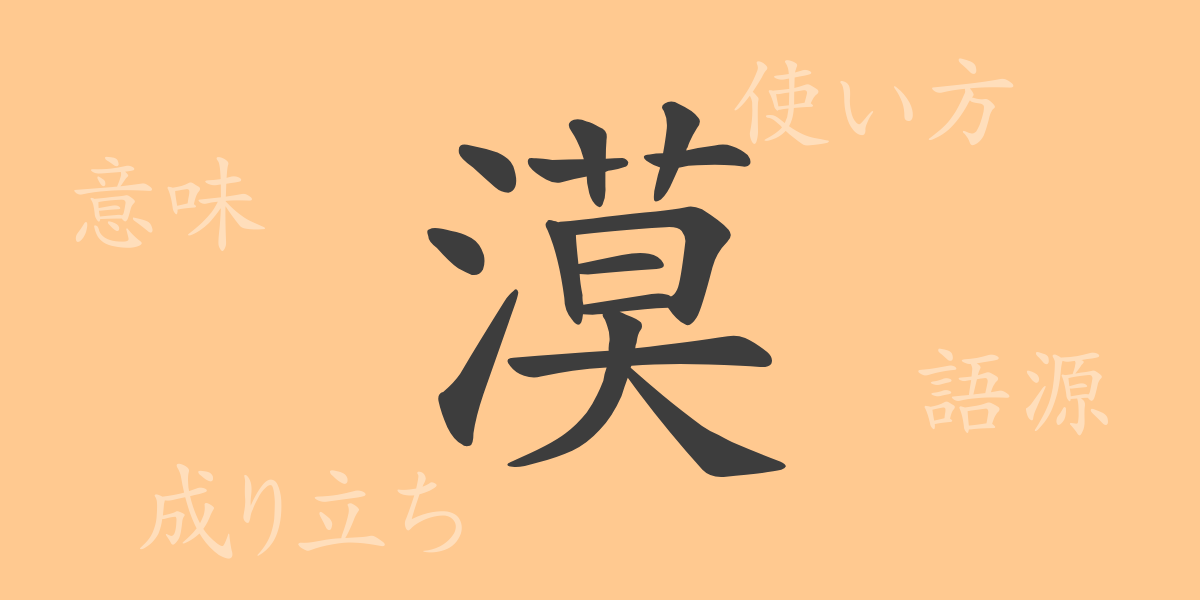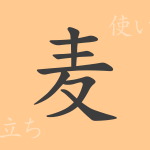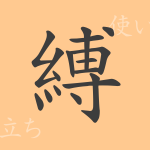In Japanese written culture, *kanji* (Chinese characters) are known for their rich forms and meanings. Among these, commonly used *kanji* characters play a crucial role in daily life, and understanding their background and usage is essential for enhancing expressive skills. The focus of this article is on the *kanji* “漠(ばく)” (*baku*), a character that carries a unique resonance and meaning. We will explore the origins, meanings, usage, and common phrases associated with “漠” to delve into its fascinating aspects.
Origin of 漠(ばく) (*baku*)
The *kanji* “漠(ばく)” (*baku*) originated in ancient China, combining the character “白(しろ)” (*shiro*), meaning “vast water,” with the water radical “氵(さんずい)” (*sanzui*), symbolizing water flow. Initially, it referred to an extensive body of water, but over time, its meaning evolved to signify “vast and endless,” and later, “vague” or “unclear,” reflecting more abstract connotations.
Meaning and Usage of 漠(ばく) (*baku*)
In modern Japanese, the *kanji* “漠(ばく)” (*baku*) primarily conveys the idea of something “vast and boundless.” It is often used in the phrase “漠然(ばくぜん)” (*bakuzan*), which means “vague” or “ambiguous.” For example, the phrase “漠然とした不安を感じる” (*bakuzan to shita fuan o kanjiru*) expresses a sense of undefined or vague anxiety.
Reading, Stroke Count, and Radical of 漠(ばく) (*baku*)
Here are the key details about the *kanji* “漠(ばく)” (*baku*):
- Reading: The *on-yomi* (Chinese reading) is “バク(ばく)” (*baku*), with no commonly used *kun-yomi* (Japanese reading).
- Stroke count: It has a total of 13 strokes.
- Radical: The radical is “氵(さんずい)” (*sanzui*), associated with water-related concepts.
Common Phrases, Idioms, and Proverbs Using 漠(ばく) (*baku*)
The *kanji* “漠(ばく)” (*baku*) features prominently in various idioms and expressions, reflecting its symbolic meaning. Here are some examples:
- 漠然としている (*bakuzan to shite iru*) – To be vague or ambiguous.
- 大漠(たいばく) (*taibaku*) – Refers to a vast, endless desert.
- 漠然たる (*bakuzan taru*) – Lacking clear form or content; indefinite.
- 漠然とした恐怖(きょうふ) (*bakuzan to shita kyoufu*) – A vague, indistinct fear.
- 漠とした (*baku to shita*) – Indistinct, undetermined.
Conclusion on 漠(ばく) (*baku*)
In everyday life, we often encounter the *kanji* “漠(ばく)” (*baku*). By examining a single character like this, we can appreciate the cultural and historical layers behind it. Understanding the profound meanings encoded in each *kanji* is the first step toward using language more richly and accurately. Exploring the *kanji* “漠(ばく)” (*baku*) offers a chance to rediscover the depth and beauty of words in the Japanese language.

























